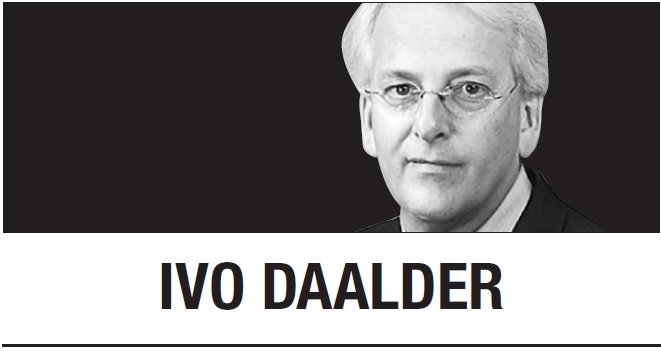
Are the United States and China heading for a new Cold War? Judging by some of the rhetoric and policies emanating from Beijing and Washington, it sure looks that way.
Already tense, relations between the world’s two largest powers have deteriorated sharply since the lethal coronavirus first emerged in the eastern Chinese city of Wuhan and then rapidly spread across the globe.
In the United States, Secretary of State Mike Pompeo has led the charge. Last January, Pompeo called the Chinese Communist Party “the central threat of our times.” And for weeks Pompeo sought to enlist America’s partners and even the United Nations Security Council into condemning China for spreading the “Wuhan Virus.”
China’s rhetoric has been no less blistering. A Foreign Ministry spokesman falsely suggested that the virus might have originated in a US Army lab. Beijing also rejected US criticism of its early handling of the outbreak as “lunacy” and repeatedly blasted Pompeo as an “evil politician” and “enemy of humankind.”
To be sure, some of the rhetorical grandstanding in Washington and Beijing is for domestic consumption.
President Donald Trump’s increasingly bitter denunciation of China came not only after weeks of praising Beijing for its “transparency,” “professionalism” and “very hard work,” but also after it became clear that the administration’s slow response had failed to stem a devastating outbreak at home. With just months to go until the elections, blaming China has become the president’s go-to foil for his administration’s own failures.
In China, too, blasting America provides useful cover for the leadership’s early failure to respond to the virus in Wuhan. And after stemming the spread through a brutal lockdown, Beijing’s propaganda machine and “wolf warrior” diplomats have jumped into full gear to condemn all those who criticize China and laud President Xi Jinping’s exemplary leadership.
Yet, at its core, the rhetorical competition represents a growing division between the US and China. Washington has abandoned its long-standing view that a growing China could be integrated into a Western, US-led world order. Even if few would go as far as Trump has in threatening “to cut off the whole relationship,” there’s widespread agreement in Washington that the competition with China for global power and influence should stand at the core of American foreign policy.
And China appears to be game. After decades practicing Deng Xiaoping’s strategy to “hide your strength, bide your time, never take the lead,” Beijing today is taking a more forceful and aggressive global stance. Under Xi, China not only rejects American global leadership; it seeks to replace it.
Economically, Xi has directed Chinese industry to lead the world in robotics, artificial intelligence, quantum computing and other high-tech fields by 2025. Militarily, China is modernizing rapidly, fielding the most advanced systems and increasingly showing off its military muscle around Taiwan, in the East and South China seas and throughout the Pacific. And politically, Beijing is trumpeting its own authoritarian system as a superior guide for others to follow.
US-China competition is inevitable. It’s what happens when a new power rises and begins to demand a greater say in shaping the future global order. But while history suggests that such competition often leads to confrontation, it by no means is inevitable.
And it isn’t in this case. Compared with the US-Soviet Cold War, the ideological competition between China and the US is muted. Yes, there are clear divergences in terms of values and how best to govern, which are playing out in Hong Kong even now. But they aren’t as deep and searing as the divisions of half a century ago.
For in stark contrast to then, the American and Chinese systems are far more intertwined economically, technologically, even socially. In some quarters, there is talk of decoupling the two economies, of bringing all production back home, as if all it takes is to fill a few pickups and drive home. But with deeply integrated markets and supply chains, separating the two economies will be wrenching and costly for all.
Most importantly, even as the pandemic has deepened divisions, it also has underscored the new reality of our world -- that the most dire threats we now face, from deadly diseases to climate change, are truly global. Global threats require global solutions, based on cooperation rather than confrontation. There are no national solutions to these threats, only international ones.
The Cold War divided the world into two camps. But today, the rest of the world shows little interest in choosing sides. Rather, nations around the world want to work together to fight climate change and defeat a deadly pandemic. And they are looking to Washington and Beijing to cooperate and lead in these global efforts.
Ivo Daalder
Ivo Daalder is president of the Chicago Council on Global Affairs and a former US ambassador to NATO. He wrote this for Chicago Tribune. -- Ed.
(Tribune Content Agency)








